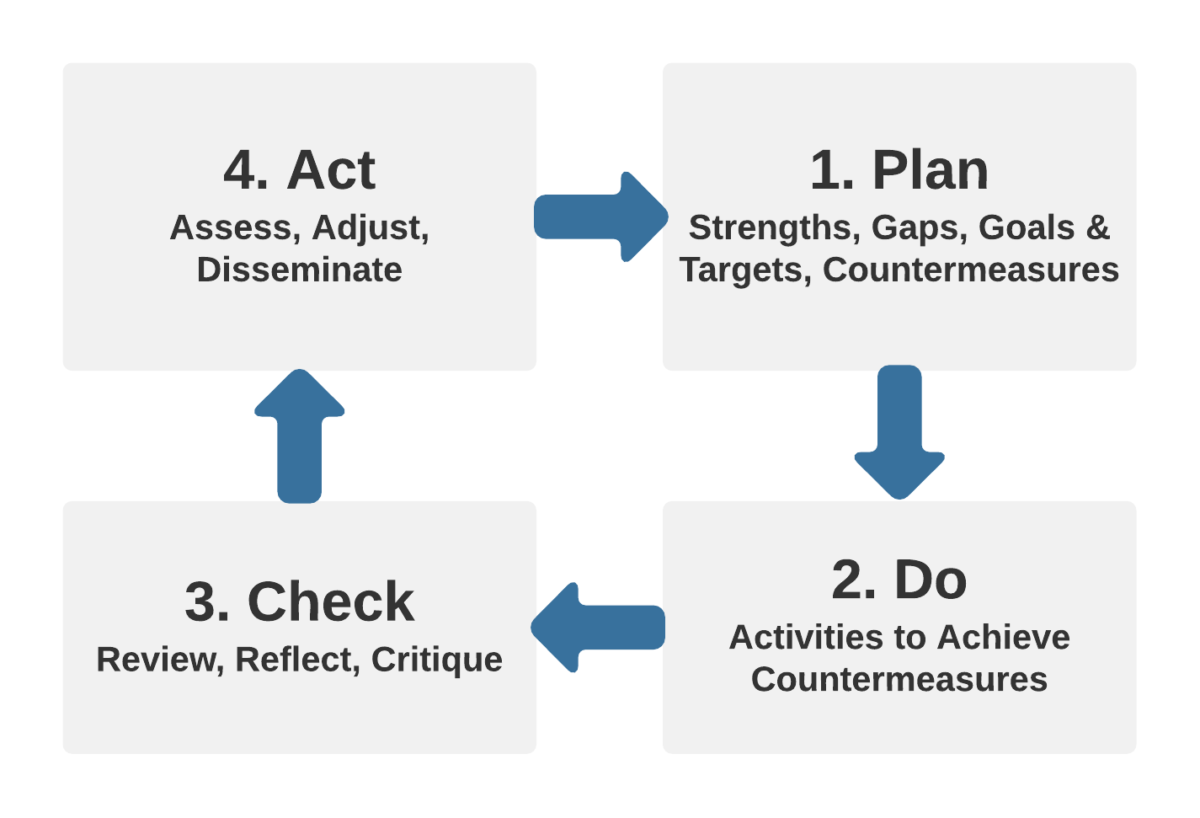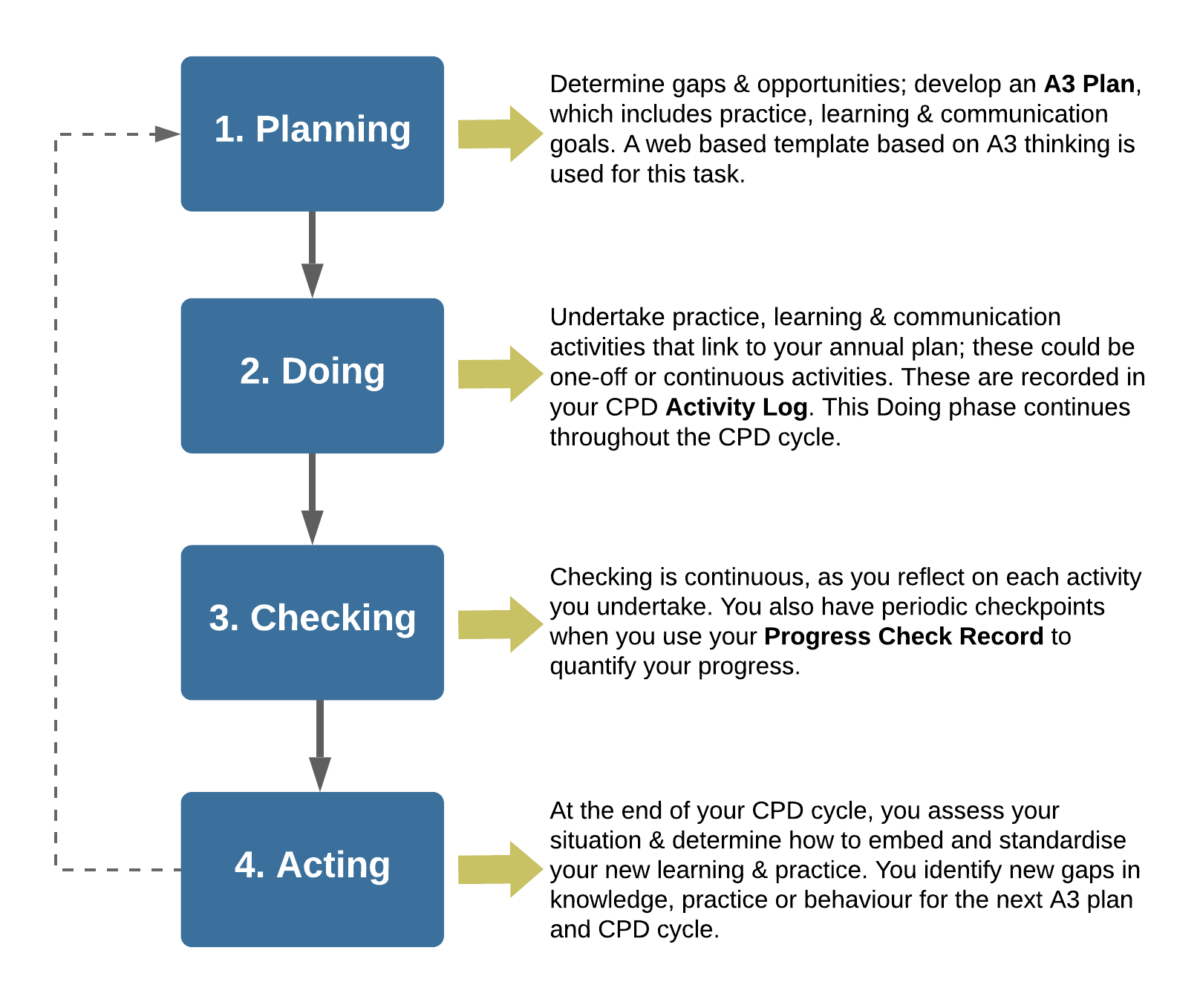What is Continual Professional Development?
- It is the process of logging and documenting the skills, knowledge and experience that you gain formally and informally as you work.
- It is a commitment towards the enhancement of personal skills and proficiency throughout your career.
The CPD process helps you manage your personal development continuously and provides a mechanism to help you record, review and reflect on what you practice and learn. LCS CPD combines different routes for competency development - for example, implementation activities, training, workshops, conferences, research, projects, teaching and writing.
CPD is self directed, driven by the practitioner, not his or her employer or advisor.
Check out this video on CPD from Chartered Institute of Personnel and Development
Why LCS Continuing Professional Development?
“We do not just build cars, we build people” – Toyota
Ongoing learning and development are fundamentally linked to continuous improvement in any role. Lean competency, therefore, should not be static, so it is imperative for the committed lean practitioner to improve his or her depth and breadth of knowledge and experience, to ensure that learning is embedded in behaviour and to remain abreast of the latest thinking around lean.
The LCS CPD Approach
LCS CPD has a unique design in that it is built around CI principles and is lean in nature. The CPD cycle has a PDCA framework at its core and recognises that professional development should focus on improving practical and communication capabilities and not just knowledge growth.

LCS CPD framework provides a mechanism to help the practitioner identify and realise his or her personal continuous improvement goals. It also signals to the practitioner community that the practitioner's competency is current and well practiced. It can be considered as a personal PDCA model of improvement.
The framework complements the existing LCS qualification structure and aims to embed and strengthen a holistic lean mindset and capability through constant self-assessment, target-setting, sharing and reflection.
Structured Development Pathway
The CPD framework allows practitioners to create and follow their own structured development pathway, enabling them to identify gaps in knowledge, practice and communication and then undertake activities to bridge them.
Featuring critical self-assessment and self-reflection, practitioners set their own learning and practice targets for the year ahead, self assess to take stock of their progress, adjust their plan and continue their development.
LCS CPD Stages Overview
An overview of each stage in the CPD cycle is shown below:



